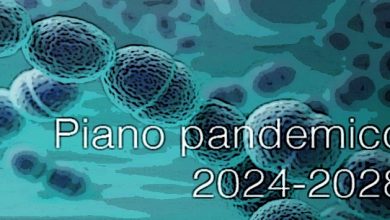
“Current European legislation does not take into account a fundamental aspect for the authorization of new anticancer drugs which could also decisively influence their prices: the fact that the new one is certainly more effective than the existing ones. This therefore does not push the pharmaceutical industry to carry out truly significant scientific research”
The director of the "Mario Negri" Institute for Pharmacological Research was a guest in Pisa for a meeting on the theme "Why it is difficult to cure tumors"
19 June 2015 – THE TYRRHENIAN PISA
P IS extension. “The key word for cancer treatment is heterogeneity, we need to tell people this because not all cancer cells are the same, just as there is no single therapeutic pathway to cure cancer”. This was stated by Silvio Garattini, director of the "Mario Negri" Institute for Pharmacological Research during a meeting at the Scuola Normale in Pisa on the theme "Why it is difficult to cure tumours".
IS extension. “The key word for cancer treatment is heterogeneity, we need to tell people this because not all cancer cells are the same, just as there is no single therapeutic pathway to cure cancer”. This was stated by Silvio Garattini, director of the "Mario Negri" Institute for Pharmacological Research during a meeting at the Scuola Normale in Pisa on the theme "Why it is difficult to cure tumours".
“Today – he explained – it is possible to transplant human tumors into mice and follow the clinical evolution they have in response to taking a certain drug and therefore the only way forward is that of research to always identify new forms of treatment , however, knowing that not all tumors are the same and that often not even the tumor cells that circulate in the body and then form metastases are the same. There is therefore no single cure for a single tumor, but studies must continue to adopt increasingly effective drugs in the face of the heterogeneity of this situation".
“The current European legislation – added Garattini – does not take into account a fundamental aspect for the authorization of new anticancer drugs which could also decisively influence their prices: the fact that the new one is certainly more effective than the existing ones. This therefore does not push the pharmaceutical industry to carry out truly significant scientific research”.
“The only requisites required – he explained – are quality, efficacy and safety, but no one asks for a new drug to be more effective than the old one and this determines that the value of the single drug is not worth the price at which it is sold. But the truth is that no one has an interest in changing this state of affairs: not the pharmaceutical industry which in this way guarantees its profits, nor the people who in any case demand effective treatments at costs which, however, only the national health system can guarantee. It is evident that in this circuit scientific research is affected and without worrying about developing more effective solutions than already existing ones becomes less significant than it could be in order to avoid an increase in costs for pharmaceutical companies which, with current legislation, are unjustified".





